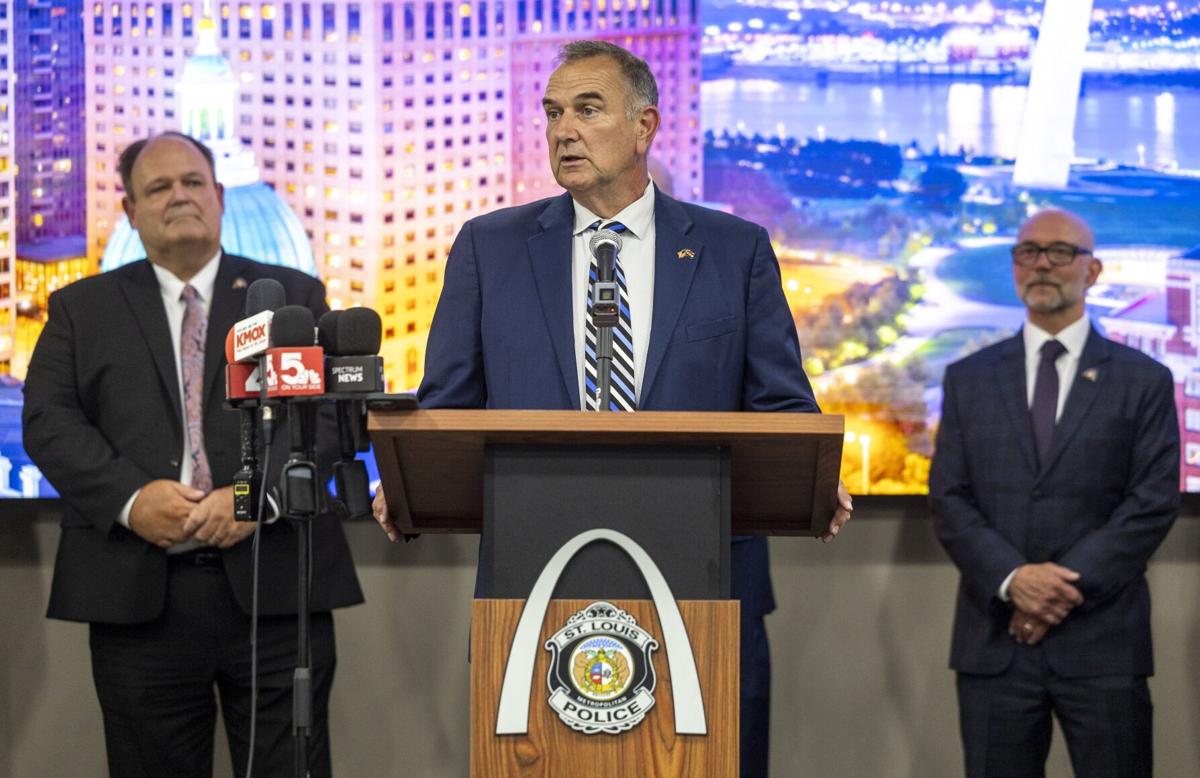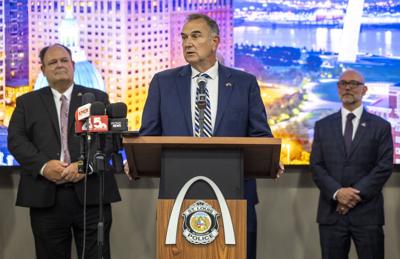WeŌĆÖre not sure which is more disturbing: That Missouri Gov. Mike Kehoe has chosen just one Black ├█č┐┤½├Įan to sit on the six-member city police board of a city that is almost half Black; or that his choice of that one Black member is a former city official who was fired under a cloud of controversy for unprofessional behavior.
WhatŌĆÖs certain is that KehoeŌĆÖs strange appointment choices here drive home the fact that the very existence of this police board ŌĆö which will extend state control over the cityŌĆÖs police department ŌĆö is an affront to local autonomy and to democracy itself.
It was a small-d democratic majority of Missouri voters who, just a dozen years ago, returned ├█č┐┤½├Į city police to the cityŌĆÖs control for the first time since the Civil War era.
People are also reading…
Yet todayŌĆÖs Republican-controlled Legislature, as it tends to do, decided this year to just ignore those voters and resume state control over city police. Thus ├█č┐┤½├Į has now returned to its demeaning status as one of just two major cities in America in which city voters arenŌĆÖt allowed to ultimately control their own police force via their choice of city leadership. (Kansas City is the other.)
The move, backed by Kehoe, was based on the baseless notion that the state will do a better job of controlling crime here than city leadership can. In fact, the worst violent crime spikes in ├█č┐┤½├ĮŌĆÖ history happened when the state still controlled the city police before; some of the biggest drops in such crimes have come since City Hall took over in 2013.
In essence, the resumption of state control over ├█č┐┤½├Į police this year was a partisan power play by a Republican state government against a Democratic-run city ŌĆö nothing more, nothing less.
Under the coercive legislation the General Assembly passed and Kehoe signed this year, the reconstituted ├█č┐┤½├Į Board of Police Commissioners will have five voting members: The cityŌĆÖs mayor and four appointees from the governor who must reside within the city. The governor also appoints a non-voting board member who doesnŌĆÖt have to reside in the city.
The five choices Kehoe announced Monday include three white male ├█č┐┤½├Į city residents: restaurateurs Chris Saracino and Eddie McVey and business owner Brad Arteaga; and non-voting ├█č┐┤½├Į County car dealer Don Brown, who is also white.
KehoeŌĆÖs sole Black (and sole female) pick is former ├█č┐┤½├Į city personnel director Sonya Jenkins-Gray.
Two problems:
One, according to the census, ├█č┐┤½├ĮŌĆÖ population is about 44% white and 42% Black, with the remainder being Hispanic and other races. In other words, a roughly even number of Black and white residents make up the overwhelming bulk of the cityŌĆÖs population.
Black ├█č┐┤½├Į has, as a culture, long endured a fraught relationship with city police marred by distrust and resentment over police killings of Black residents and other issues. Whatever the varied details of those controversies (and they run the gamut of blame), seeing local police controlled by a state board that so completely fails to reflect the cityŌĆÖs racial demographics certainly wonŌĆÖt ease tensions.
Black city residents are ŌĆ£not going to see representation. TheyŌĆÖre going to see the good ole boysŌĆÖ system,ŌĆØ city Alderman Rasheen Aldridge told . ŌĆ£Just got one person of color? ThatŌĆÖs problematic.ŌĆØ
Problem No. 2: That one person of color is ŌĆ” Sonya Jenkins-Gray? That choice is, in a word, weird.
Jenkins-Gray was the cityŌĆÖs personnel director under former Mayor Tishaura Jones, who appointed her but ended up seeking her removal earlier this year in what became a major controversy. Jenkins-Gray claims she was fired for political reasons and, this being ├█č┐┤½├Į, thatŌĆÖs certainly possible.
But JonesŌĆÖ claim that Jenkins-Gray ŌĆ£displayed a gross lack of judgmentŌĆØ is hard to dispute: While she was the cityŌĆÖs personnel director, she had a subordinate drive her to Jefferson City in a city vehicle on work time to deal with what appeared to be a personal marital issue; had the subordinate drive her on some other personal errands lasting late into the night; subsequently promoted the subordinate with a raise in pay; and allegedly offered to lie for the subordinate to protect him from the fallout.
This is the only qualified Black person in ├█č┐┤½├Į that Kehoe could find to appoint to the police board?
That requires some kind of explanation from the governor ŌĆö and due diligence from the state Senate before it confirms these nominees.













